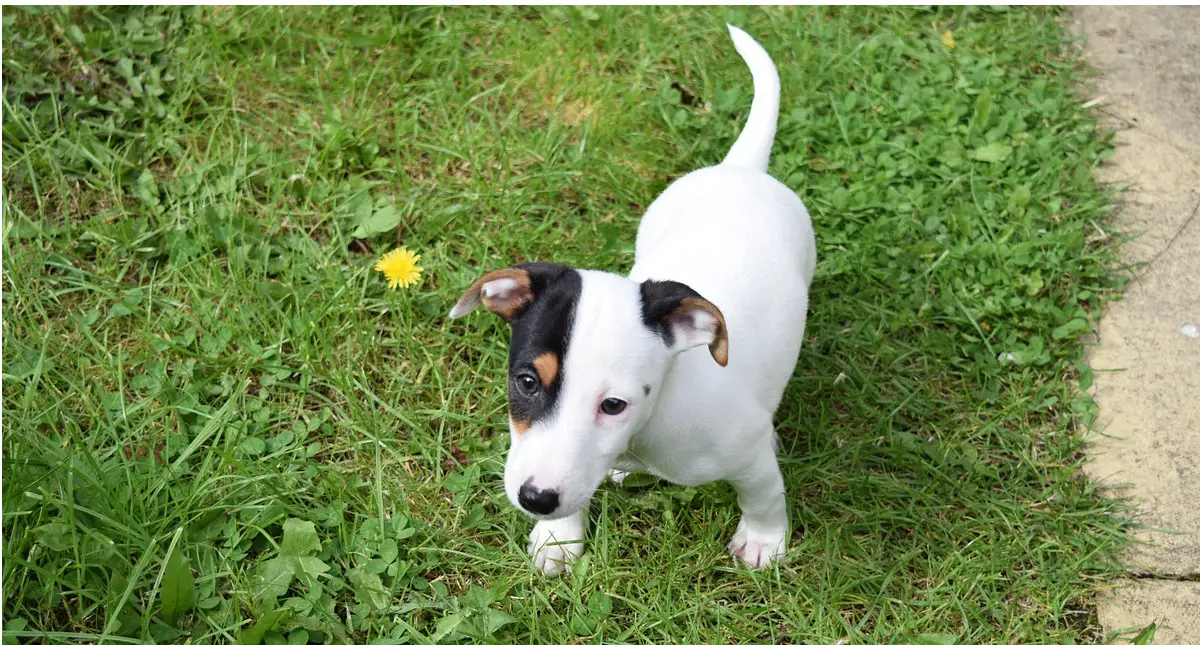Table of Contents
*This post may contain affiliate links. As an Amazon Associate we earn from qualifying purchases.
A common complaint about the Jack Russell and other terriers is that they dig. They may dig up your garden, they may dig up your lawn, they may even dig under the fence meant to keep them inside the yard.
Why do they do that? And, if it’s causing a problem in your home, what can you do to stop it?
Why Dogs Dig
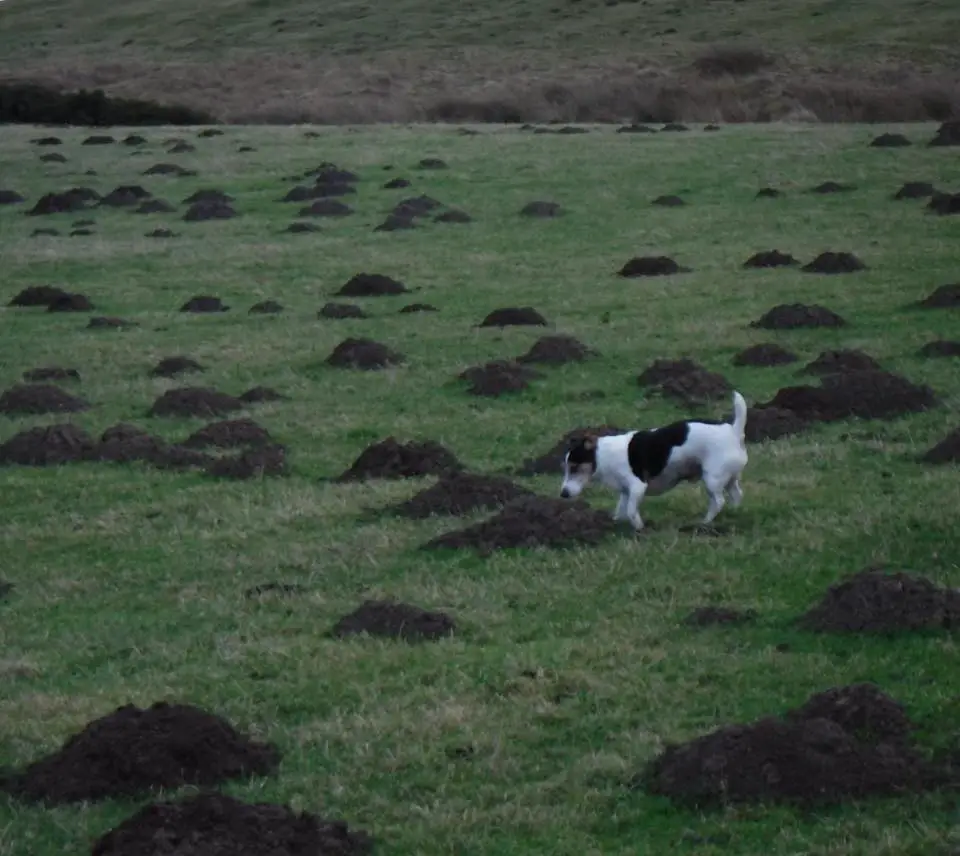
There are a lot of reasons dogs dig. Some are behavioral, and some — especially with a Jack Russell — are breed characteristics. But there’s always something you can do about it.
Why the Jack Russell Digs
The Jack Russell Terrier was bred as a hunting dog. Specifically, it was bred to drive prey animals to
It’s not uncommon for a Jack Russell on a hunt to chase an animal into its burrow, then burrow in behind them. And when they do this, the hunter may have to dig both dog and prey out.
Your Jack Russell may dig if his or her powerful nose smells prey animals underground. They may also dig instinctively, not really knowing why.
Boredom
A dog may also dig out of boredom. This is especially true of the quick-minded Jack Russell. Think about it. If you were left in the back yard alone while your family went out without you, wouldn’t you look for something fun to do?
To beat the heat
If you live in a warm climate, your dog may dig down to where the earth is cooler, so that they can have somewhere more comfortable to lie down.
Anxiety
Dogs experiencing anxiety, including separation anxiety, can become destructive. They can get into the trash, or rip up cushions — or dig a great big hole in your lawn.
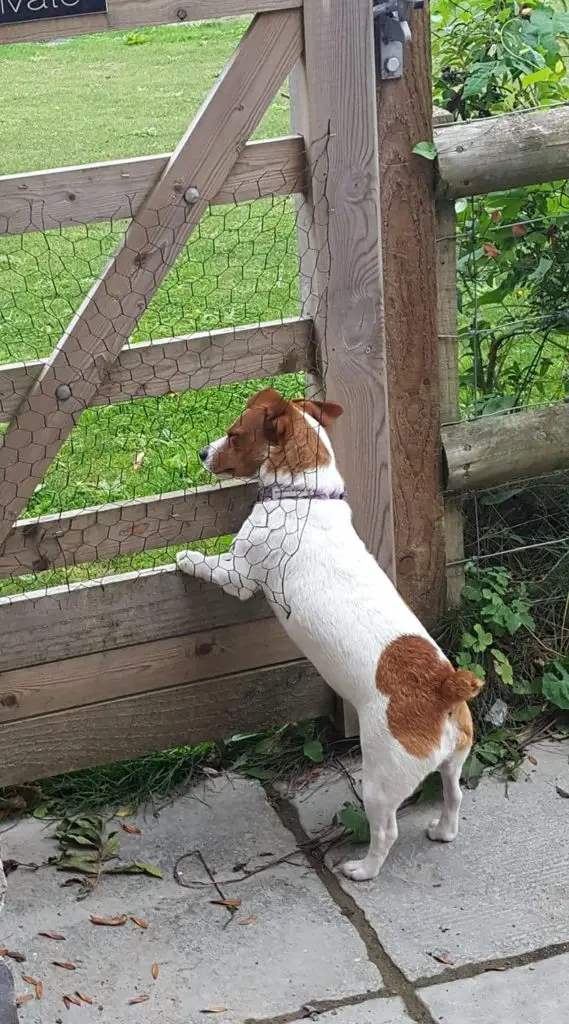
Energy levels
The Jack Russell terrier, as we all know, is a very high-energy dog. And if they can’t find a constructive way to discharge that energy, they’ll find a destructive one. That can include digging.
Just because it’s fun
Unfortunately, some dogs dig recreationally. And this may mean getting creative with your solutions.
What to Do if Digging is a Problem for You
If your Jack is digging up your yard, and it’s driving you bananas, don’t worry. There are a number of things you can do.
Don’t punish your dog after the fact
Your dog won’t make the connection, and if the digging is anxiety-related, punishing them could make it worse.
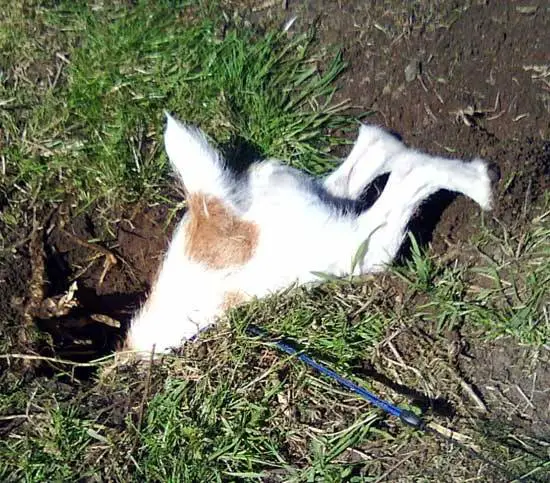
Address underlying causes
First things first. If you can identify why your dog is digging, you can address the root of the problem.
If your dog is digging to keep cool, make sure they’re not left outside in hot weather. Also, when they are outside, provide them with shade and fresh water to drink, and possibly to splash around in, if they enjoy that.
If your dog is anxious or overflowing with energy, give them some extra exercise. Add a second (or third) walk every day. Spend some time with them throwing the ball or playing tug
Deter the behavior
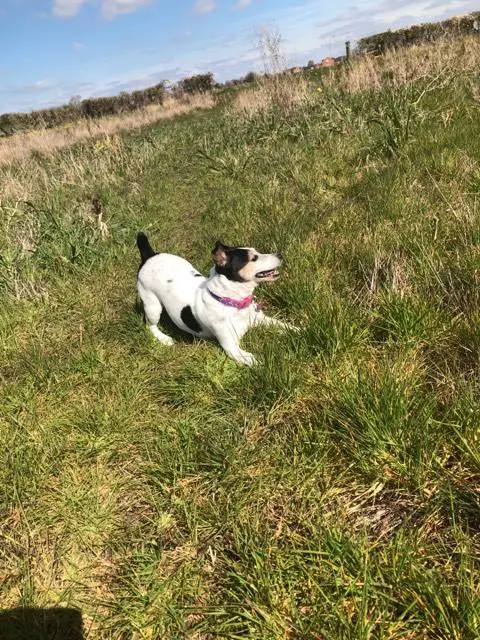
Burying chicken wire, chain link fencing, or rocks in the areas your dog likes to dig will discourage digging. Dogs
You can also fence off areas, such as flower beds, where you don’t want your dog to dig.
Offer alternatives
If your dog is digging out of boredom, activate their minds! Food puzzle toys are fun and enriching. You can also set out a “treasure hunt” for treats in your house or yard. And if your dog spends a lot of time outdoors — and you have the time, energy, and inclination — consider installing a dig box.
What’s a dig box?
A dig box is a designated part of your yard where digging is OK. It’s a good compromise for a recreational or instinctive digger. On one hand, it allows your dog to pursue an activity that’s fun and instinctive. On the other hand, it will save your lawn.
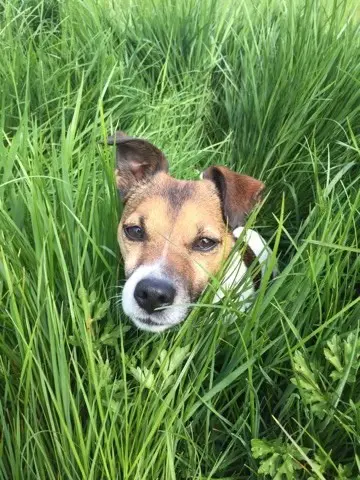
A dig box can be as simple or as complicated as you like. For simpler designs, try these:
- Fill a plastic pool with sand or dirt.
- Build them a sandbox.
You can also go all out and fence off a corner for your dog’s own digging paradise. Bury treats and toys to make it even more attractive. Why would a dog want to dig anywhere else?
Can You Dig It?
When you have a Jack Russell, sometimes digging comes with the territory. But it doesn’t have to be a bone of contention. With a little attention, and a little planning, you can come to a solution that works for you and your dog.
Featured Image: CC0, via Maxpixel

